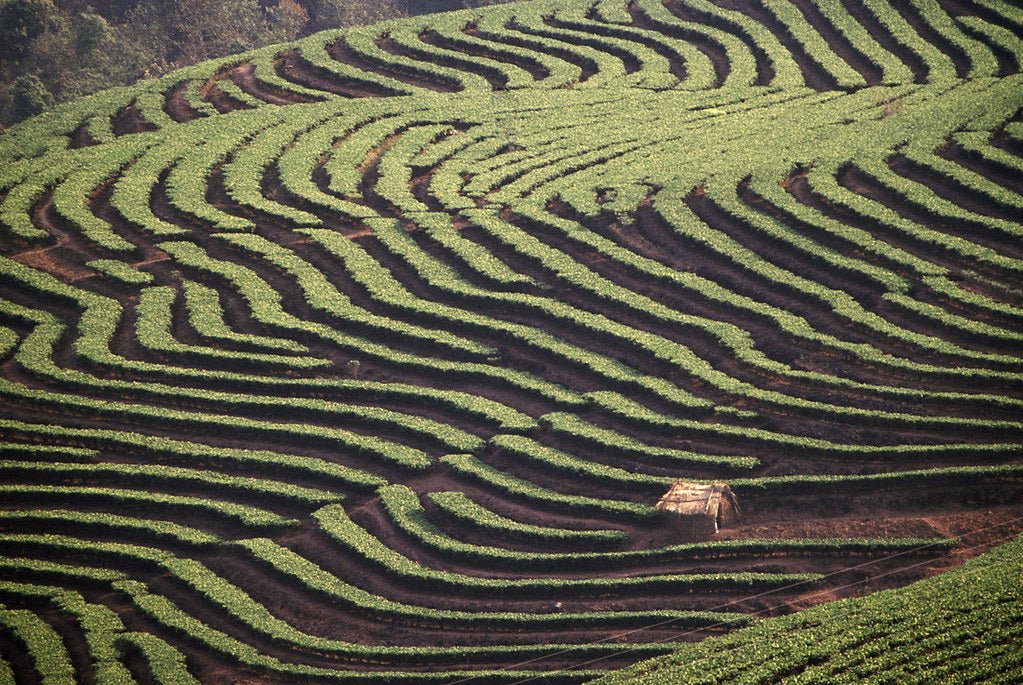These days, many coffee enthusiasts are familiar with Yunnan coffee, a specialty delight from China. But how did this region, better known for tea, become a global name in specialty coffee? Let’s explore the journey of Yunnan coffee and why it’s making waves.
My first taste of Yunnan coffee was back in 2020 at Host x Amber in Bangkok, Thailand. It was brewed by Dawn Chan, a multi-world-award-winning barista champions, and it left an unforgettable impression. The coffee had undergone a low-temperature or iced fermentation process, which was groundbreaking at the time. The cup was candy-like with a black tea finish—a flavor profile that was both familiar and exciting. The natural anaerobic process added depth, enhancing the sweetness while maintaining a unique complexity.

Curious about this black tea finish, I dug deeper into Yunnan's history. Before coffee, Yunnan was—and still is—famous for Pu’er tea, an ancient fermented tea with a legacy spanning thousands of years. In fact, Yunnan Province is the birthplace of tea! The region's fertile lands once flourished with tea plantations before shifting to crops like rice, tobacco, and other staples.

Coffee Takes Root in Yunnan
The coffee story in Yunnan began in earnest in the 1980s when the Chinese government encouraged farmers to diversify their crops. Nestlé played a key role, introducing coffee cultivation to the region and supporting farmers through training and resources. Coffee quickly became a viable alternative to traditional crops like tea and tobacco, but Pu’er tea has remained a significant cultural and economic pillar.
At first, Yunnan’s coffee was grown at lower altitudes (around 1,200 meters), primarily for commercial and instant coffee markets. But as the world’s appetite for specialty coffee grew, so did Yunnan’s ambition. Today, farmers are cultivating high-quality Arabica beans at altitudes as high as 2,000 meters, experimenting with varieties like Geisha, and pushing the boundaries of specialty coffee production.

Yunnan Coffee Today
Fast forward to now, Yunnan produces 98% of China’s coffee, reflecting the rapid growth of coffee consumption in the country. With its mountainous terrain and ideal climate, the region is a prime candidate for sustainable and organic coffee farming practices. Coffee trees also help preserve the environment, promoting biodiversity and supporting the livelihoods of smallholder farmers.

The region is also a hub of innovation in coffee processing. Yunnan producers are constantly experimenting with methods like thermoshock, anaerobic fermentation, co-fermentation, and carbonic maceration, alongside traditional techniques like washed and natural processing. One standout coffee from the Manxieba Village in Pu'er, Yunnan is a honey-processed coffee that beautifully reflects its tea-growing heritage. The cup boasts a strong fruit-tea-like aftertaste, reminiscent of Yunnan’s iconic Pu’er tea.

Our Role at Newbery Street Coffee Roasters
At Newbery Street Coffee Roasters, we’re passionate about showcasing Asian coffee origins. While Thai coffee is our specialty and close to our hearts, we’re equally thrilled to introduce you to the treasures of Yunnan.
This golden era of Chinese specialty coffee deserves a spotlight, and we’re excited to roast the Manxieba Village Pu'er, honey-process coffee lightly, highlighting its delicate tea-like finish. Whether you’re a seasoned coffee enthusiast or curious about Asian coffee origins, this is one cup you won’t want to miss.

